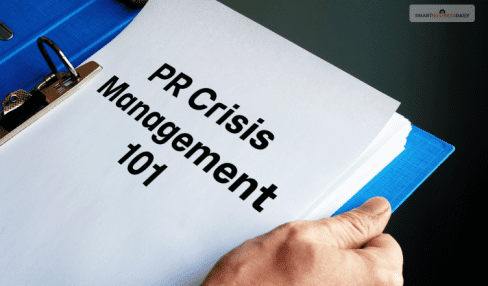What’s Involved In Getting An NFPA 70E Certification?
4 Mins Read
Published on: 02 June 2023
Last Updated on: 09 September 2024

toc impalement
Workplace safety is a significant concern across various industries, particularly electrical systems. The risks associated with electrical hazards, such as arc flashes, require a comprehensive understanding of safety protocols and mitigation strategies.
Therefore, electrical professionals should have the expertise to identify and prevent potential electrical hazards to ensure the safety of employees and businesses.
One significant certification that validates this expertise is the NFPA 70E certification. This certification ensures that individuals working with or around electrical systems know how to maintain a safe work environment. So, as a professional, what is involved in obtaining this crucial certification? Read on to find out!
Understanding NFPA 70E Certification
Before embarking on the certification journey, it is essential to understand what NFPA 70E is. This is a standard developed by the National Fire Protection Association (NFPA) that outlines guidelines for electrical safety in the workplace. Its primary focus is preventing electrical accidents and protecting workers from electrical hazards, specifically arc flashes. Arc flashes are sudden, explosive releases of energy caused by electrical faults. They result in extremely high temperatures, intense light, and a blast wave that can cause severe injuries or even fatalities.
NFPA 70E certification is awarded to professionals who demonstrate a comprehensive understanding of the NFPA’s 70E standard. It equips individuals with the necessary knowledge and skills to identify and mitigate arc flash hazards, ensuring their safety and those around them.
Prerequisites For NFPA 70E Certification
NFPA 70E applies to all employees working on or near electrical systems. This includes electricians, supervisors, maintenance personnel, engineers, designers, project managers, safety managers, and anyone working on or around electrical equipment.
The NFPA Certification Process
The NFPA 70E certification process involves comprehensive training and examination to ensure individuals have the required expertise. Professionals are required to attend courses that specifically cover NFPA 70E. These courses are usually offered by authorized training providers or organizations specializing in electrical safety.
The training covers various aspects, including:
- The skills and techniques required to differentiate between exposed live parts and other components of electrical equipment.
- The different types of electrical hazards, including arc flashes. Knowledge in hazard identification, risk assessment, and effective hazard control methods.
- The skills and techniques in determining the nominal voltage of the exposed live parts.
- The minimum approach distances for the voltages that qualified employees encounter.
- The decision-making process in assessing the level and scope of the hazard, as well as determining the appropriate personal protective equipment and job planning.
Training sessions can be conducted both online and onsite, offering flexibility to individuals with different schedules and preferences.
Upon completing the course modules, you must sit for an exam that evaluates your understanding of the standard, safety practices, risk assessment, personal protective equipment (PPE) selection, and other related topics. The examination typically consists of multiple-choice questions that assess an individual’s comprehension and application of the concepts.
After successfully passing the exam, you will receive the NFPA 70E certificate. This certification demonstrates your electrical safety competence and ability to apply the standards and guidelines outlined in NFPA 70E.
Continuing Education And Recertification
Continuing education is a crucial element of NFPA 70E certification. Engaging in continuous learning and professional development activities enables certified individuals to stay abreast of industry advancements, emerging technologies, and updated safety protocols. It also allows them to remain competent in electrical safety practices.
To maintain the validity of the certification, you must undergo recertification every three years. This ensures that professionals refresh their understanding of the NFPA 70E standard, stay current with evolving safety practices, and reinforce their commitment to workplace safety.
However, training can be conducted more frequently (annually) if there have been modifications to electrical equipment or updates in the procedures for handling that equipment in the workplace. Additional training or retraining may also be carried out if annual inspections show that employees’ actions are not compliant with safety-related work practices.
Benefits Of NFPA 70E Certification
Here are some of the benefits of NFPA 70e certification.
- Improved skills in conducting risk assessments
- Enhanced workplace safety
- Compliance with Regulations
- Increased awareness of potential hazards.
- Enhanced implementation of protective measures
- Updated knowledge of safety procedures
- Credibility and Industry Recognition
Getting An NFPA 70E Certification
Obtaining NFPA 70E certification is a significant step toward ensuring electrical safety in the workplace. To get this certification, individuals must undergo comprehensive training to be equipped with the knowledge and skills to identify and mitigate electrical hazards such as arc flashes. The certification offers numerous benefits, including improved risk assessment skills, enhanced workplace safety, compliance with regulations, increased awareness of hazards, enhanced implementation of protective measures, updated knowledge of safety procedures, and credibility and industry recognition.
Read Also:


















Comments Are Closed For This Article